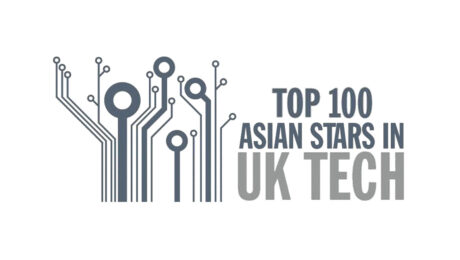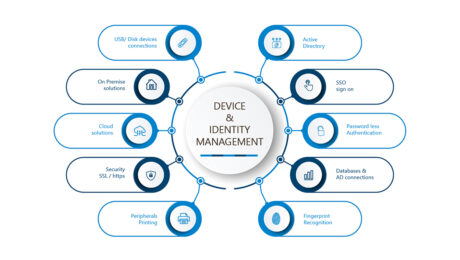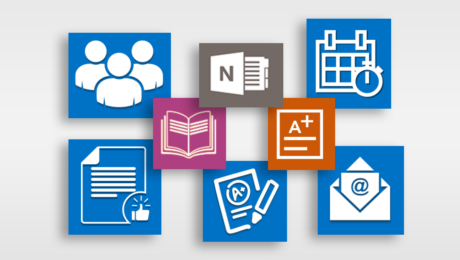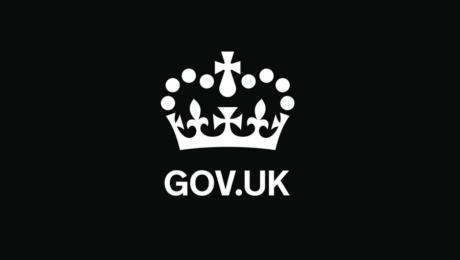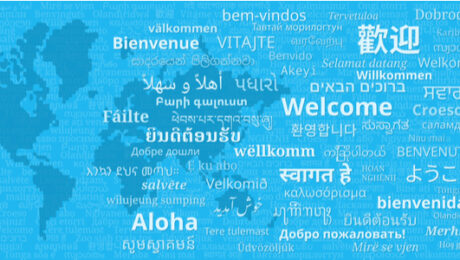App Updates
During the COVID pandemic schools globally were faced with no classroom based learning. While the decision was made to close schools undoubtedly saved lives, but posed disruption to students.
While schools scramble to adjust to the new norm, Learning Possibilities took this initiative to enhance their Lp+365 product to ensure that new but secure features were made available for students to use for their on-line experience.
App Feature Updates:
- e-Library – The e-library is a selection of over 15,000 educational titles, including classics, from around the world that have been part of the foundations of education for centuries.
All books are available to download onto any device and can even be viewed offline.
The search and filter options help you to find the exact content that you are looking for and you can also mark books as favourites to make them easily available from the favourites Tab.
Collections are groups of books on a particular subject that are presented together for your convenience.
- White-label – Partner now have the option to White-label the App.
General Updates:
- Security – Bug fixes to address vulnerabilities.
- Skype Chat – Skype chat has been removed from the App as Microsoft are withdrawing the product.
- Published in Articles
LP CEO get major award – Top 20 Asian Tech Pioneer in the UK, 2020 – by Diversity UK and New Asian Post
We are delighted to announce that our CEO, Dr Mehool Sanghrajka, has been awarded Top 20 Asian Tech Pioneer in the UK for 2020. Full details of the list are below.
“2020 has been a very difficult year for schools and businesses, and I am delighted that our efforts to help schools cope with this pandemic and give them a blueprint for the future have been recognised. I thank the amazing team at Learning Possibilities for all that they do. We look forward to working with even more schools in 2021.”, said Mehool.
Details of the award can be found here:
Asian Tech Pioneers 2020 – Asian Stars in UK Tech (asiansintech.com)
- Published in Articles
Building a social enterprise – a Founder’s view.
I was excited to have been recently interviewed by the London Law Collective, on my inspirations, successes and challenges in founding Learning Possibilities, a social enterprise, and advice I would offer to others. You can see the interview on their website.
- Published in Articles, Uncategorized
How to create a structured course in LP+365
LP+365 supports all teaching methods including ‘Structured courses’ which some teachers may have used previously on other LMS platforms. ‘Structured courses’ allow teachers to present all of their learning resources and activities together to their students, in one simple package. Watch ‘How to create a Structured course in LP+365’ below to find out more.
To read an independent paper evaluating LP+365 and Moodle, click here.
- Published in Articles, Uncategorized
LP+365 Design Series #2: How do we think about data..?
At Learning Possibilities we have handled data for millions of young people. Protecting learner data was paramount in the design of the LP+365 platform, and continues to be our #1 focus area. Our initial selection of a Tier 4 data centre, and subsequently the Microsoft Azure Cloud were based predominantly on security considerations.
Today, we continue to embed data security and access management into our platform. This includes data sovereignty to ensure that the location of the data, even within the cloud, is guaranteed.
We ensure that the data is encrypted at every level, and with strong identity management, access is limited to appropriate functionality and resources. Every user has an individual login ID and password which provides access to the platform. This can be strengthen by adding multi factor authentication.
Every system that has human interfaces also has potential vulnerabilities. However, our tiered approach is designed to minimise these, to ensure the safety and security of our learners, whilst they benefit from our learning and collaboration platforms.
- Published in Articles, Uncategorized
LP+365 Design Series: Where do my inspirations come from in designing LP+365..?
In initially designing LP+365, we took our inspiration from many places. In this blog I wanted to share some of our thoughts during this process.
Firstly I have been a long term user of the iPhone. I see from my own experience, as well as those of other iPhone users, that they use their iPhones for long periods during the day. However, not all iPhone users have the same apps on their phone. Its this ability to select the apps that you want that makes us heavy iPhone users. From an app perspective we all use different apps, but from a phone perspective we are heavy phone users.
Similarly we wanted to ensure high levels of adoption of the LP+365 platform and so we designed it with a selection of tools, rather than a process for teaching. Therefore you will find in LP+365 that there are many ways to do most tasks, and we let the teacher select the tool that suits them. For example, an assignment may be set on the Quiz tool, Assignment tool, Class Notebook, or as an emailed Word Document. A teacher will select the tool that is most appropriate, perhaps based on the tool’s features, or the devices and connectivity available, their own IT-confidence etc. They are not limited to a process, or a single tool. In this way each teacher will use the tools they want, but the app itself sees heavy and regular usage.
Secondly of all the apps on my iPhone, I probably use ‘WhatsApp’ most frequently. I have never had to learn how to use this app, and I find that new features are both instinctive and simple to use. I see that even my mother, who has little experience of technology, has mastered it. We wanted to make LP+365 similarly simple and so all the tools are presented in simple tiles. In addition all features are simplified, with 1 minute – ‘how to’ videos added to each tile, and a selection of languages to use them. Many teachers tell us that as soon as they have mastered one tile, they are able to use the other without formal training.
Does it work? In practice, we see even in very large deployments that more than 90% of schools use LP+365 regularly, and as a result evidence shows that learners gain key digital skills.
- Published in Articles, Uncategorized
Learning for the New Normal: Skills for the Digital World
Would you trust a surgeon who has never worked with another human being, only practiced on artificial and mechanical bodies, and never treated another human, but has an encyclopaedic theoretical knowledge (acquired digitally through a distance learning course no less) to operate on your heart, or your eyes, in the full knowledge that any incorrect decision would kill you or render you blind?
Classrooms, schools and universities are here to stay, as the most critical skills, knowledge and experience cannot be passed on and taught digitally (atleast not yet).
However, the shift to digital technology and resources is here to stay as well. Therefore, it is critical, that the future of learning is designed, ameliorated and amended with this in mind.
Parents who believed that devices were not good for their kids, and blamed their offspring’s addiction to the screen for their lack of social interest in the real world, are suddenly faced with a reality of having to encourage and teach their young ones using the very same technology.
Therefore, it is morally and critically important that we all share, learn and absorb skills for the digital and technology driven world.
Digital skills are mentioned often and are a focus of many a platform, but before Digital Skills we all need to learn Skills for the Digital world.
From the experience of the last 4 months, and having previously been a teacher my 5 top skills to master are:
- Security: This is not just the Pin number you enter to unlock your phone, but understanding:
- Where your Data and Personal Information resides – Where is your Digital home?
- Who has access to all the information: Yes someone knows what websites you visited and what documents you have saved – the question is WHO?
- Who controls your data: Your data is not your data. When you accept “cookies” or “accept Terms & condition”, many times you are willingly giving your data away. Sometimes it is for the free use of a platform, and sometimes it is just for the pleasure of watching something or reading something online.
- Connectivity: The assumption that the “internet” is always available is dangerous. Knowing the limitations of connectivity is critical, and ensuring you have your most critical information securely stored “offline” on your device or on a separate easily accessible Hard Drive is important
- Data Storage: Linked to connectivity, many people have become dependent on online storage, with many companies offering free online storage for its “CUSTOMERS”. This ties the customer or the learner into their ecosystem. If you stop being customers, the ecosystem is no longer accessible to you. Recognising the limits and knowing how to “untie” yourself from the ecosystem means you have choice of systems.
- Systems: With the fast evolving world, it is critical for the learner to have knowledge and skills not just for a particular system like Apple, Android (Google), Microsoft, or Linux but be familiar with as many as possible. Different industries and companies work on different systems and software and ensuring you have the right technology foundation is important.
- Understand the Technology: An “old school” trick, understanding the basics of how an ecosystem works means that you will be able to seamlessly shift from different operating systems and different devices as newer companies come to the fore and older ones disappear. Erm, so how do I use this Gateway computer with MS-DOS? (anyone remember this!)
Once you understand the basic Skills for the Digital World, you are now ready to pick up some Digital Skills!
In my next blog, I shall talk about my top 5 Digital Skills for the new normal. Until then, go out, breathe the fresh air and switch off your screen!
- Published in Articles, Uncategorized
Online Education Resources for Home Learning
The British Government have published online educational resources for schools and parents to help children to learn at home during the Coronavirus (COVID-19) outbreak…. read more here.
- Published in Articles, Uncategorized
Virtual Schooling: Sustainable Learning Solutions for the New Normal
It’s only been a week since my last blog and the BBC have reported that children in 10,000 homes in the UK will be provided with vouchers for internet, highlighting the disparity and inequality of technology access for learners.
Another article pointed to lack of engagement amongst students, due to a number of reasons including lack of technology and study space. Learners from poorer backgrounds were less engaged than those from wealthier backgrounds according to the referenced NFER study.
With reality setting in, these limitations and inequalities are becoming prominent, and with limited signs of any vaccine against the virus, the focus must shift to implementing sustainable solutions for the new normal. On a positive note, we are beginning to see education departments in governments starting to ask questions around sustainable and easy to implement solutions with more focus on the solution rather than the product.
What is becoming clearer by the day is that the world is not yet ready for a digital only solution, while the current situation cannot accommodate the old mode of classroom only learning. Therefore, an innovative integrated blended solution is critical for the new normal. Having spoken to education departments across a dozen countries, I am seeing trends for the following solutions or combination of solutions as a priority:
- Scalable, Flexible and Secure Learning System that;
- Engages the learner and is Easy to use for teacher
- Has been deployed and delivered outcomes at a national level
- Can be used in the classroom to ameliorate onsite teaching as well as for home learning
- Connectivity Solution: In partnership with telecom providers and NGOs, a unique model is developing to provide subsidised or free access to government approved learning apps. In return, the providers are able to use school grounds to put up secure satellite hubs and local WiFi hotspots, bringing benefits of internet access to the wider community.
- Digitalising Assessments: With paper handling being linked to virus transmission, governments are seeking solutions to digitalise exams and assessments, as well as deploy devices (personal and government owned) in the classroom. If implemented, this would amount to a significant overhaul of decades old testing system, as well as environmental and financial benefits of saving paper.
- Administration tools: In the Western world, a large part of school administration, identity management and reporting is already digital. This is now being sourced and implemented in the developing world, to help manage and monitor onsite and offsite learning outcomes and engagement.
Alongside this, various governments are beginning to look at content and curricula. However, given the complexity and political nature of this area, the focus for most civil servants has been to simply digitalise their existing resources and make it available through their learning and/or resource management systems.
I am encouraged by the speed and intensity with which governments are engaging, collaborating and communicating with each other and the wider education community.
The shift in focus from crisis management using free software solutions, to a more realistic and sustainable long-term learning solutions is not only a necessity but critical for the future of education. Decisions made now will shape the future of generations to come.
- Published in Articles, Uncategorized
LP+365 now with even more languages
At LP+ we are always looking for ways to drive user engagement and reduce the barriers for both teachers and learners. Over the past 10 years, we have seen that adding language options that allow each user to choose a language for the app interface drives usage and access. This in turn makes the app friendlier to use. All users are, of course, free to add contetn in any language of their choice, regardless of the language interface. In addition to English, our current language selection includes; Arabic, Bangla, Gaeilge (Irish), Filipino, Marathi, Tamil and Sinhala. New languages are being added all the time! To see the LP+365 app, see our solutions site here.
- Published in Articles, Uncategorized


